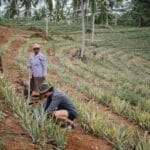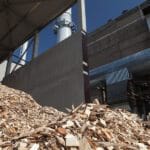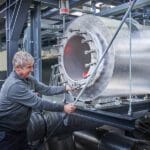Welcome to our Spotlight Series, a collection of articles designed to illuminate the diverse and innovative methodologies in the world of carbon credits. As climate action gains momentum, understanding these methodologies becomes essential for both individual and corporate stakeholders. From biochar to afforestation, we’ll delve into various projects and techniques that are making a tangible difference in carbon sequestration. Whether you’re new to carbon markets or looking to deepen your understanding, we invite you to explore this series. For those seeking a comprehensive guide to navigating the carbon credit landscape, you can find invaluable insights in our buyer’s guide. Join us on this enlightening journey as we explore the essence of sustainable environmental stewardship.
Carbon credits are part of an emerging market for climate change mitigation efforts, and one approach that has gained significant traction is the Biochar methodology. This technique focuses on creating a form of charcoal known as biochar, which is produced from the pyrolysis of biomass. The biochar production process not only reduces greenhouse gas emissions but also contributes to carbon sequestration, locking away carbon for hundreds or even thousands of years.
Biochar has a distinct advantage over some other carbon offset methodologies. Firstly, it’s a multi-pronged solution – not only does it reduce atmospheric carbon dioxide, but it also enhances soil productivity and fertility, promoting healthier ecosystems. Secondly, the biochar methodology is versatile, making use of various feedstocks like agricultural residues, forestry waste, and even municipal organic waste. These qualities make it a dynamic and effective approach to carbon credits.
Now, let’s take a look at some real-world projects that utilize this innovative methodology:
PlanBoo: A Biochar Pioneer
PlanBoo is biochar carbon removal company doing things a little differently. They are a values-driven team who have built our solution from the ground up, moving from Europe to live and work in the tropics allowed them to truly understand how they can create long-lasting change for both people and planet. Their solution combines innovative technology and ancient farming practices to bring real-time data and real-life stories of carbon transformation from their projects. By nurturing biochar projects in the tropics, they channel carbon finance to areas of the world affected most by the climate crisis.
Their vision is biocharging their way towards a more equal, more resilient future – their biochar projects across the tropics are just a piece in the puzzle, yet a powerful tool towards systematic change. Their company’s belief is that great minds don’t think alike, and their vision is a future where those differences are celebrated and used to tackle challenges in nuanced, inclusive ways – for people and for planet.



PlanBoo’s key projects include:
Namibia – Puro.earth:
- Project Vision: This groundbreaking endeavor aims to make Namibia the largest producer of biochar in Africa.
- Challenges Addressed: By harnessing carbon finance, the project tackles encroaching bush threatening the savannah ecosystem, water scarcity, savannah degradation, and green job creation.
Thailand CSI Artisan:
- Utilization of Bamboo: The project uses bamboo offcuts to produce biochar, aiding in carbon dioxide removal and soil quality improvement.
- Sustainability: By transforming agricultural waste streams into biochar, the project improves local air quality and generates jobs and revenue for the community.
Malawi – CSI Artisan:
- Regenerative Agriculture: This project employs a regenerative model, growing large quantities of bamboo in what used to be a tobacco plantation.
- Soil Restoration: Through the conversion of bamboo into biochar, the initiative restores soils, enhances crop yields, and fortifies agricultural resilience against drought.
Sri Lanka – CSI Artisan:
- Local Farmer Support: With two projects in Sri Lanka, PlanBoo aids local farmers in enhancing soil condition and boosting compost production through biochar development.
- Scalable Solution: The pilot projects in Sri Lanka have found scalable solutions through designing kilns and perfecting blends of organic liquid compost across the country and tropics.
Through these initiatives, PlanBoo illustrates how the biochar methodology facilitates climate action and socioeconomic development simultaneously.
Novocarbo: Pushing the Boundaries of Biochar
Novocarbo is an impressive player in the biochar space, with its wide-reaching influence spanning across Europe. Their activities encompass:
- Serving as one of Europe’s leading biochar suppliers for a variety of applications such as industrial feedstocks, agriculture, water treatment, and decarbonizing building materials.
- Collaborating with global companies and research institutes to develop innovative biochar use cases.



A glimpse into their groundbreaking projects:
- Carbon Removal Site Rhine (2018):
- Constructed their first carbon removal plant with three BCR systems and a capacity of around 1,000 t/a carbon credits.
- This pioneering plant laid the foundation for the efficient operation of carbon removal projects worldwide.
- Conducted research and experimentation with various input materials and pre/post-production treatments, as well as energy utilization.
- Carbon Removal Site Thyssenkrupp Rothe Erde (2022):
- Commissioned the first fully integrated Heat-as-a-Service solution at an existing industrial site.
- This project helped the client avoid fossil fuels by supplying green energy.
- Demonstrated efficient use of space on-site, thanks to their modular system and established biochar supply chains.
- Carbon Removal Park Baltic Sea (Opening Q3 2023):
- Expanding capacities with a new plant in Grevesmühlen that will start with two larger pyrolysis systems and capture about 3,200 t of CO₂.
- The site, designed for easy scalability, is conveniently located near one of Europe’s major wood transhipment points.
Novocarbo’s work serves as an excellent model for companies seeking to integrate biochar methodology into their climate action plans, showing how to optimize efficiency and adaptability while contributing to carbon sequestration and emission reduction.
Bella Biochar: Revolutionizing Biochar Production in Canada
Bella’s Biochar Corporation, based in Ontario, Canada, stands out as a premier commercial scale manufacturer of certified organic, premium quality biochar. Key aspects of their work include:
- They are the only Canadian company (Ontario-based) to produce biochar at a commercial scale from landfill-diverted biomass.
- They focus on carbon capture and the resulting greenhouse gas reductions, which stay locked away for millennia.
They take pride in being a pioneering entity in the industry, emphasizing that quality must be underpinned by scientific evidence. To this end:
- They partnered with NSERC (Natural Sciences and Engineering Research Council of Canada) and Western University to substantiate the quality of their biochar.
- For every metric tonne of Bella Biochar produced, approximately 3 metric tonnes of CO2 are removed from the atmosphere and remain stored.



Their biochar has diverse applications:
- Wetland restoration
- Mine remediation
- Air/Water/Soil filtration
- Soil amendment/Growing medium/Substrate
The production and use of Bella’s Biochar also result in numerous co-benefits:
- Minimizing Landfill Waste: By utilizing biomass that would otherwise go to landfills, including clean waste wood and forest debris, Bella’s Biochar is making strides in waste reduction.
- Preventing Carbon Release: Bella’s Biochar’s process helps retain carbon in forest biomass, preventing its release into the atmosphere through natural decay.
- Eco-friendly Substitute: Bella’s Biochar provides an environmentally friendly alternative to Peat Moss and Fertilizers, minimizing their negative impacts on ecosystems and soil health.
- Efficient Filtration Solution: Proven to have superior adsorption properties compared to Activated Carbon, Bella’s Biochar efficiently removes odors, moisture, and chemicals from air, water, and soil.
- Enhancing Agricultural Productivity: Bella’s Biochar can significantly boost crop and dairy yields when added to soil or feed, contributing to food security.
- Promoting Water Conservation: By retaining moisture and gradually releasing it as required, Bella’s Biochar aids in water conservation and reduces the risks associated with drought and overwatering.
- Reducing Disease Spread and Antibiotic Use: By adding Bella’s Biochar to animal bedding or feed, it can lower the rates of Upper Respiratory and other infections in livestock, decreasing the need for antibiotic use.
- Lowering Methane Emissions: Bella’s Biochar, a non-pyrolysis biochar, neither produces Methane nor contributes to Cattle methane production. Instead, it improves livestock digestion, thereby reducing Methane emissions.
These co-benefits show how Bella’s Biochar’s innovative approach can result in carbon sequestration and a multitude of environmental, health, and economic advantages.
Conclusion
In the fight against climate change, every method matters. The Biochar methodology presents a compelling approach to carbon credits, offering not only a robust climate solution but also an avenue for improved ecological health.
Are you interested in buying biochar credits? Contact our sales team.





